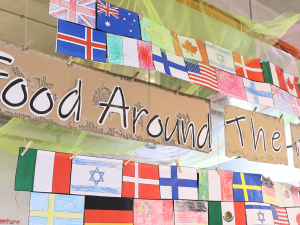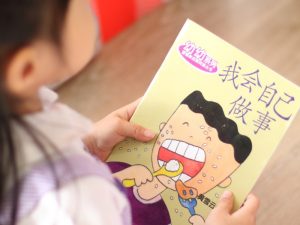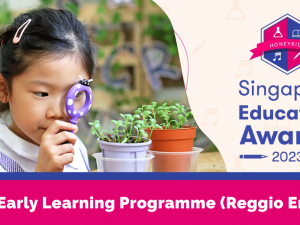

Growing up is a continuous learning process. There is a sea of knowledge and skills in a world of constant changes that children must cultivate in their development path.
Children need to develop comprehensively to adapt and meet the requirements of the new modern era. Holistic development is, therefore, crucial for kids because it focuses on nurturing all aspects of a child’s growth.
What is the Holistic Development of a Child?
Holistic improvement of a child is set to assist and develop the complete child in all areas of improvement. Holistic development consists of five aspects: physical, social, emotional, intellectual, and spiritual.
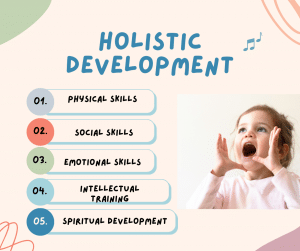
The important skills a toddler should have to get holistic development:
1. Physical Skills:
- Gross Motor Skills: Walking, running, jumping, climbing, and balancing are gross motor skills your child can develop.
- Fine Motor Skills: Your child can practice grasping objects, using utensils, colouring, and building with blocks.
- Hand-Eye Coordination: Activities that involve catching, throwing, and manipulating objects.
2. Social Skills:
- Sharing and Turn-Taking: Parents can teach the importance of sharing toys and taking turns in games or activities with their children.
- Empathy: You help them recognize and understand others’ emotions, showing care and concern.
- Play and Cooperation: children can engage in group play to develop social interactions and peer cooperation.
3. Emotional Skills:
- Self-Regulation: You teach your child to manage their emotions, express frustration appropriately, and calm themselves down. These require extra time to develop.
- Identifying Emotions: You help them recognize and label their own emotions as well as those of others.
- Positive Self-Concept: Your child fosters healthy self-esteem and a positive self-image.
4. Intellectual training:
Intellectual development is an essential aspect of human growth and involves enhancing cognitive skills, knowledge acquisition, and the ability to apply information to different situations.
Your toddler can foster Intellectual training through:
- Arts and Crafts: Parents provide materials for drawing, painting, and other creative activities.
- Pretend Play: You encourage imaginative play where they can create scenarios and stories.
- Vocabulary Expansion: Read books, sing songs, and engage in conversations to enhance their vocabulary.
- Listening and Speaking: Encourage active listening and provide opportunities for them to express themselves verbally.
- Nonverbal Communication: You help your children understand gestures, facial expressions, and body language.
5. Spiritual development:
Spirituality often involves seeking a deeper understanding of life’s purpose and meaning, exploring questions about existence and one’s role in the world.
Spiritual development for your children could be:
- Engage in activities stimulating their senses, such as playing with textures, exploring scents, and experimenting with different tastes.
- Curiosity and Exploration: Parents encourage them to explore their surroundings, ask questions, and learn through hands-on experiences.
- Object Permanence: Understanding that objects continue to exist even when out of sight.
Why is holistic development important for kids?
Here are some reasons why holistic development is important for kids:
- Overall Well-Being: Holistic development promotes the overall well-being of children. By addressing various dimensions of development, kids are more likely to experience physical health, emotional stability, and a positive self-image.
- Healthy Cognitive Development: Addressing cognitive development ensures that children acquire critical thinking, problem-solving, and decision-making skills, which are essential for their academic and lifelong learning journey.
- Social Skills and Relationships: Holistic development helps children develop social skills, including communication, empathy, and cooperation. These skills are vital for forming positive relationships with peers, family members, and the community.
- Emotional Intelligence: Fostering emotional development helps kids understand and manage their emotions, enhancing their ability to cope with challenges, regulate their behaviour, and empathize with others.
- Creativity and Innovation: Nurturing creative skills allows children to think outside the box, innovate, and express themselves in various ways. This is crucial for their personal growth and adapting to an ever-changing world.
- Confidence and Self-Esteem: Children who experience balanced development are likelier to develop a strong sense of self-worth and confidence. This foundation positively impacts their willingness to explore new opportunities and take on challenges.
- Resilience: A well-rounded development equips children with the skills to handle setbacks, manage stress, and persevere through difficulties, contributing to their overall resilience.
- Lifelong Learning: Holistically developed children tend to be curious, self-directed learners who continue to explore and grow intellectually, socially, and emotionally throughout their lives.
- Success in Multiple Areas: A holistic approach prepares children for success in various aspects of life, not just academics. It equips them to excel in personal relationships, work environments, and community involvement.
- Holistic View of Health: By addressing physical, emotional, and social aspects of development, children are more likely to adopt healthy habits and attitudes toward their well-being.
- Personal Fulfillment: Holistically developed individuals are more likely to find purpose and fulfilment as they better understand themselves and their place in the world.
5 Activities to enhance the holistic development of a child
1.Construction Play
Providing puzzles, building blocks, and construction toys promotes problem-solving, spatial reasoning, and fine motor skills. These activities encourage logical thinking and patience while allowing children to experience the satisfaction of completing tasks.
2. Arts and Crafts:
Artistic activities like drawing, painting, and crafting support fine motor skills, creativity, and self-expression. These activities encourage children to experiment with colors, textures, and shapes, fostering their cognitive development and emotional expression.
3. Nature Exploration and Outdoor Play:
Artistic activities like drawing, painting, and crafting help develop children’s fine motor skills, creativity, and self-expression. These activities encourage children to experiment with colours, textures, and shapes, fostering their cognitive development and emotional expression.
4. Music and Movement:
Engaging in music and movement activities, such as dancing, singing, and playing musical instruments, supports physical and cognitive development. Music can enhance language skills, rhythm perception, and coordination, while movement activities encourage gross motor skills and self-expression.
5. Listening to a story
Storytelling and imaginative play help develop language skills, creativity, and cognitive abilities. Children can create their narratives, characters, and scenarios, which nurtures their emotional intelligence, problem-solving skills, and social interactions as they play with others.
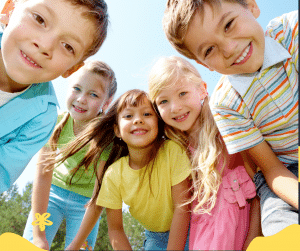
Conclusion
Imagine how wonderful it is when your child is both healthy and talented! This depends on the child’s education and living environment.
Understandably, each child will have different talents and interests. Therefore, it is crucial to observe and discover to nurture the child’s talents in the future and focus on the above 5 aspects of holistic development.


